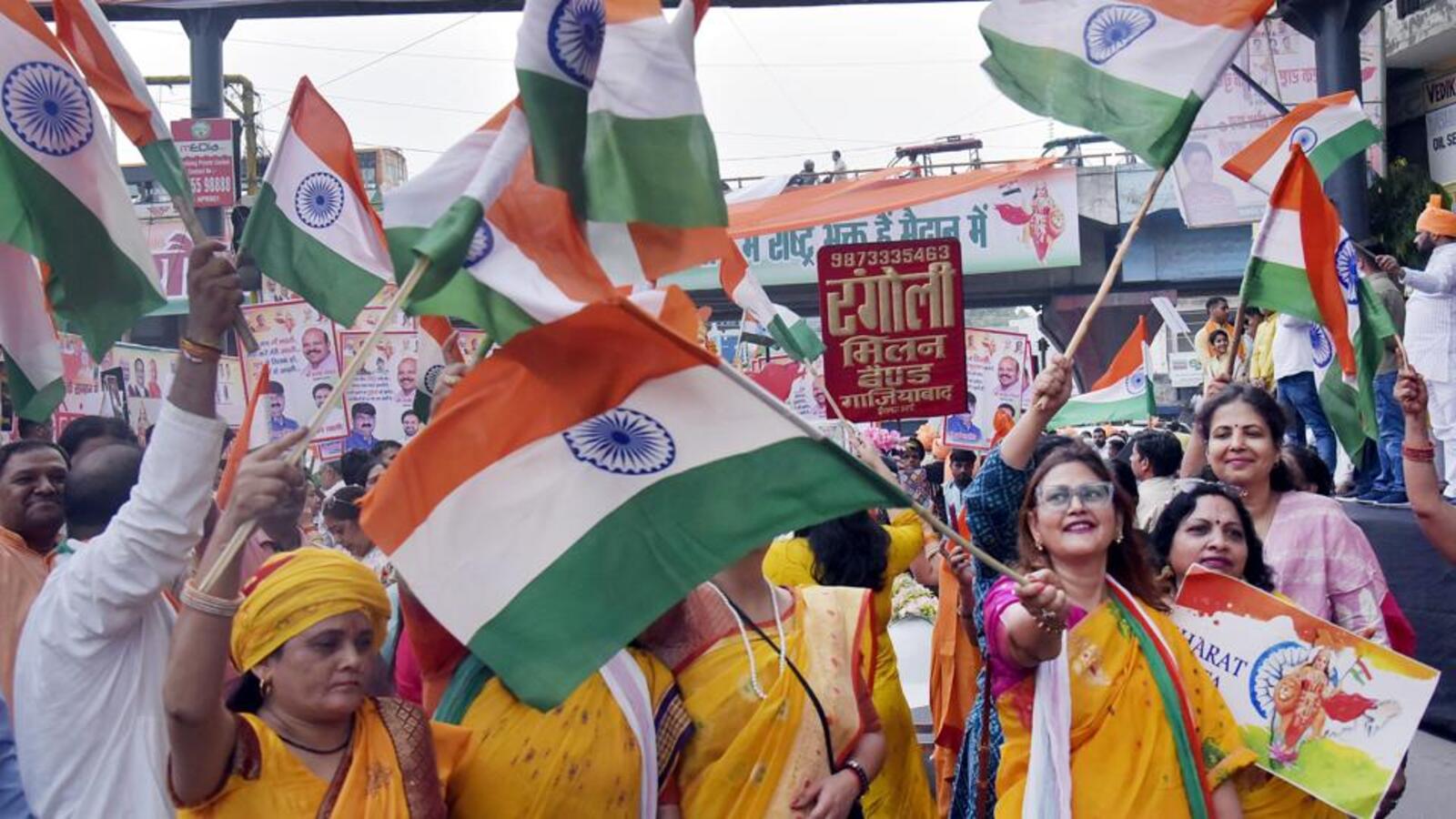New Delhi: India and Pakistan reached an understanding on Saturday to stop all military actions against each other after four days of intense armed confrontation triggered by the Pahalgam terror attack, and the cessation of hostilities followed efforts by the US and other key powers to address fears of a full-blown shooting war.

Foreign secretary Vikram Misri announced the understanding to the media hours after India’s armed forces struck eight military sites in Pakistan with air-launched precision weapons in response to attacks on Indian military infrastructure and civilian areas by combat jets, drones and missiles.
“The Director General of Military Operations of Pakistan called the Director General of Military Operations of India at 1535 hours IST earlier today. It was agreed between them that both sides would stop all firing and military action on land and in the air and sea with effect from 1700 hours Indian Standard Time today,” Misri said.
“Instructions have been given on both sides to give effect to the understanding. The Director Generals of Military Operations will talk again on the 12th of May at 1200 hours,” he said, without giving details.
The dramatic announcement came four days after India’s military launched Operation Sindoor on May 7 to target terrorist infrastructure in Pakistan and Pakistan-occupied Kashmir (PoK) in retaliation for the April 22 terror attack in Pahalgam that killed 26 civilians and was blamed on a proxy of Lashkar-e-Taiba (LeT). India’s military action heightened tensions and triggered a series of strikes and counter-strikes that saw both sides using armed drones, missiles and combat jets.
Misri’s announcement was preceded by social media posts by US President Donald Trump and Pakistan’s deputy prime minister Ishaq Dar that spoke of a “ceasefire”. Trump said India and Pakistan had agreed to a “full and immediate ceasefire” after a “long night of talks mediated by the United States”. He added: “Congratulations to both Countries on using Common Sense and Great Intelligence.”
Dar said the two sides had agreed to a “ceasefire with immediate effect”, and that Pakistan has strived for peace and security in the region without compromising on its sovereignty and territorial integrity.
US secretary of state Marco Rubio, who spoke earlier in the day with Pakistan Army chief Gen Asim Munir, said in a social media post that he and US vice president JD Vance engaged with senior Indian and Pakistani officials, including Prime Ministers Narendra Modi and Shehbaz Sharif, external affairs minister S Jaishankar, and National Security Advisers Ajit Doval and Asim Malik, to broker a “ceasefire”. Rubio also contended that India and Pakistan would “start talks on a broad set of issues at a neutral site”.
People familiar with the matter, who spoke on condition of anonymity, made it clear that the two sides reached the understanding to stop military actions bilaterally, after the Pakistani side initiated a call for discussions on the matter. There were no preconditions attached to the understanding, which was also not linked to other issues between India and Pakistan, the people said.
The people also set aside the US secretary of state’s contention that India and Pakistan will hold talks on a range of issues at a neutral venue, saying no agreement had been reached on such an issue.
“There are absolutely no conditions attached to this understanding and our resolve to counter terrorism directed against India remains firm and unchanged,” one person said. The people said India will not deviate from its long-standing position of engaging with Pakistan on all issues only bilaterally.
A second person said Operation Sindoor has demonstrated that the dynamics of India’s response to cross-border terrorism too have changed. “We have shown that we are capable of striking terrorist infrastructure and military installations deep within Pakistan, and that there will be a high cost for cross-border terrorism,” he said.
The punitive measures put in place against Pakistan by India a day after the Pahalgam terror attack, including the suspension of the Indus Waters Treaty, closure of the only land border crossing at Attari and downgrading of diplomatic ties, will remain in place and won’t be affected by Saturday’s understanding, the people said.
Commodore Raghu R Nair of the Indian Navy, while briefing the media alongside Col Sofiya Qureshi of the army and Wing Commander Vyomika Singh of the air force, said all three services had been instructed to adhere to the understanding. India’s responses since the Pahalgam terror attack have been “measured and very responsible”, he said.
Nair added, “Let me reiterate that whilst we will be adhering to the understanding that has been reached today…we remain fully prepared and ever vigilant and committed to defending the sovereignty and integrity of the motherland. Every misadventure by Pakistan has been met with strength and every future escalation will invite a decisive response.”
Qureshi and Singh said Pakistan had suffered “very heavy and unsustainable losses” after its unprovoked attack on Indian installations. There has been extensive damage to crucial Pakistani airbases such as Skardu in PoK, Sargodha, Jacobabad and Bholari, and the loss of air defence weapon systems and radars made the defence of Pakistani airspace untenable, they said.
Across the Line of Control, there was “extensive and precise damage” to military infrastructure, command and control centres and logistic installations, leading to a “breakdown of its defensive and offensive capability”, they added.
Qureshi and Singh told another briefing on Saturday morning that the Indian Air Force struck eight military sites in Pakistan, including radar units and ammunition dumps, with air-launched precision weapons, in response to Pakistan’s attacks on India’s military infrastructure and civilian areas using combat jets, unmanned combat aerial vehicles (UCAVs) and missiles.
In a swift and calibrated response, the IAF struck military targets in Rafiqui, Murid, Chaklala, Rahim Yar Khan, Sukkur, Chunian, Pasrur and Sialkot, the officials said. Pakistani forces targeted a raft of air bases in Punjab with missiles after 1.40 am, and medicare centres and schools at three air bases in Jammu and Kashmir were hit too.
The night-long developments marked the fiercest clashes between the two sides since India launched Operation Sindoor in the early hours of May 7.
Misri, who too addressed the earlier briefing, said India’s military strikes on Saturday were a response to the escalatory and provocative actions of Pakistan, which is engaged in a “wanton campaign” of targeting civilians in Jammu and Kashmir and Punjab.
Misri debunked Pakistan’s claims about destroying or damaging military installations, critical infrastructure, and power and cyber systems in counter strikes and said India has “defended and reacted in a responsible and measured fashion to these provocations and these escalations”.




















